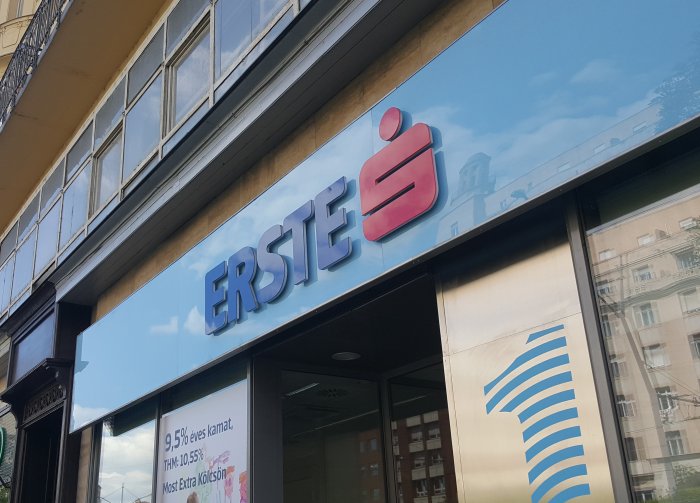The U.K. may Have Left the EU, but English Law Still has a Significant Role to Play Here
-EDIT-OK.jpg)
Eszter Török
The Budapest Business Journal sat down with Anikó Kircsi, partner and head of corporate/M&A at CMS Budapest, and Eszter Török, senior counsel in the corporate/M&A and finance departments, to discuss how the law firm can help large local businesses with English legal issues to support investments in the CEE region.
BBJ: How common is it for large local investors to encounter English law issues?
Anikó Kircsi: Large local investors may well come across English law issues in Hungary. First, in many M&A transactions where the seller and the buyer are from different countries, the parties choose to specify English law as the governing law of the contract. Also, large multinationals outside Hungary may have their standard supply agreements subject to English law, and the local entities as purchasers may not have any choice in this case.
Eszter Török: A third example comes to mind when a local entity takes a loan from a sizeable consortium of international banks. In these financing transactions, we also see that lenders often prefer English law for the financing contract.
BBJ: English law is based on Common Law and precedent, whereas Hungarian (and European) law has its roots in Roman law. How hard is it to make the two compatible?
AK: Yes, there are significant differences. You would be surprised, however, by how many similar concepts we also come across. The notion of the freedom of contract is fundamental in both Hungarian and English law (of course, there are exceptions), and this is what forms the basis for a lot of our work. Interestingly, the typical structure of English law contracts has become the norm in other jurisdictions; even non-English law contracts of complex M&A transactions now tend to follow English law templates and include specific English law concepts such as warranties, indemnities or break fees.
ET: Indeed, both legal systems allow the parties to record the terms of their agreement freely; during that process, of course, our lawyers will ensure that the specific terms of the contract are compatible with the peculiarities of English or Hungarian law.
AK: One particular example comes to mind: a mandatory Hungarian act says certain types of contracts involving state-owned assets must be subject to Hungarian law and set out in Hungarian. So, of course, when this applies, we have to advise our clients to respect this.
-EDIT-OK.jpg)
Anikó Kircsi
BBJ: Any discussion involving the United Kingdom and EU member states inevitably defaults to Brexit sooner or later. Has that made matters even more complicated?
ET: Yes, there were a lot of discussions on this topic during the transitional period in 2020, as neither the market players nor the advisors knew how, exactly, the various international treaties would be changed after Brexit. Ultimately, it turned out that Brexit has made little practical difference to our work. It is still very much possible and practicable to agree on English law in both cross-border M&A and financing deals, and the courts in both the United Kingdom and Hungary will continue to accept the parties’ agreement on this, provided, of course, that the contract is worded correctly.
BBJ: What can CMS Budapest bring to the table in these matters that set it aside from your competitors?
AK: Of course, there are several international law firms in Budapest with sizeable offices in London who can advise clients on English law issues where needed. At CMS, we provide the same assistance locally. In addition to Eszter, a dual U.K.-Hungarian qualified senior counsel, we have several additional lawyers on our team who are qualified in non-Hungarian jurisdictions. This means that, in addition to local law advice, we can provide English law advice in Hungarian.
ET: And while price is not everything, I think in the current economic climate, we should mention that when we give English law advice here in Budapest, we use our local rates, not those of our London colleagues!
BBJ: In which sectors do you most often come across English legal issues?
AK: In addition to significant company acquisitions and financing deals, we tend to come across English law issues in the IT sector and with clients for whom we run a so-called managed legal service. Broadly, this is where we assist the in-house legal team of a large multinational company by taking care of all their day-to-day routine work, such as low-value contracts, which allows the in-house lawyers to focus on their strategic, more complex projects. The work we do there tends to involve contracts under English law (and occasionally other jurisdictions); we provide this service for a fixed monthly fee.
BBJ: Do you see areas of potential growth for transactions in CEE where English legal issues are involved?
ET: We see a number of wealthy local investors eyeing investment opportunities in other CEE countries. When these opportunities materialize, we may well see the need for English law advice if the parties choose to apply the law of a neutral state. Interestingly, some of the largest Hungarian companies are also looking at the fast-growing region of Central Asia as a further investment opportunity. OTP, for example, recently purchased the fifth-largest bank in Uzbekistan.
BBJ: Is there anything else to add?
ET: One thing we have not yet mentioned is that a lot of clients prefer to agree on arbitration in their contracts instead of ordinary courts. This is, of course, possible and we see a lot of this arrangement, with the parties agreeing on English law and arbitration.
AK: Yes, we usually support our clients in this choice. For example, we have found that the London Court of International Arbitration (LCIA) offers a flexible and impartial administration of arbitration, regardless of whether the agreement is under English or Hungarian law.
This article was first published in the Budapest Business Journal print issue of June 2, 2023.
SUPPORT THE BUDAPEST BUSINESS JOURNAL
Producing journalism that is worthy of the name is a costly business. For 27 years, the publishers, editors and reporters of the Budapest Business Journal have striven to bring you business news that works, information that you can trust, that is factual, accurate and presented without fear or favor.
Newspaper organizations across the globe have struggled to find a business model that allows them to continue to excel, without compromising their ability to perform. Most recently, some have experimented with the idea of involving their most important stakeholders, their readers.
We would like to offer that same opportunity to our readers. We would like to invite you to help us deliver the quality business journalism you require. Hit our Support the BBJ button and you can choose the how much and how often you send us your contributions.










